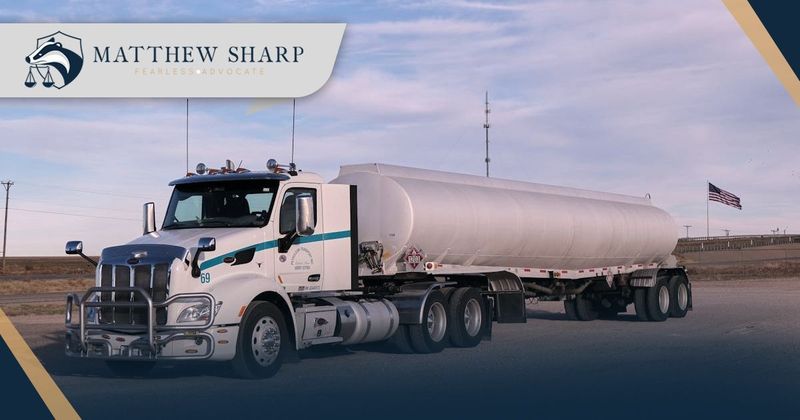The Dangers of Tanker Truck Accidents
A tanker truck spill is going to mean delays. That was certainly the case in a recent accident outside of Vegas involving a tanker truck that spilled over 1,000 gallons of fuel, forcing the closure of all northbound lanes on I-15.
While delays like these aren’t welcomed, they are a more favorable outcome than a tanker truck colliding with another vehicle, resulting in serious injury or a fatality.
An accident with a tanker truck can lead to devastating injuries for motorists and their passengers.
These kinds of accidents can have many different entities besides the driver who would be partially responsible. The best approach for assigning liability and seeking compensation is to get help from an experienced Reno truck accident attorney.
The Law Office of Matthew L. Sharp can provide that guidance and help you understand what you’re entitled to and the challenges you might face.
The Federal Motor Carrier Safety Administration (FMCSA) will investigate any tanker truck accident. According to their data, there are over 1,300 cargo tank rollovers each year, which averages out to 4 rollovers every day across the country.
What are the dangers of tanker truck accidents? Consider the following reasons:
The Underride Hazard
A tanker truck’s unique rear bumper design works for the truck but is a potentially dangerous factor in a rear-end collision. The bumper is positioned higher off the ground, aligning it with the driver’s head in many sedans. If that type of car collides with a tanker truck, it could slide under the bumper, bypassing the car’s crumple zones.
That can lead to catastrophic consequences for the car driver and front-seat passengers.
Increased Stopping Distance
The speed of a truck correlates with how much braking distance it needs to come to a complete stop.
A fully loaded tanker truck would need to stop close to the length of two football fields. That means it needs to see the potential hazard far down the road and then react. Anything that is caught in the braking zone will be smashed into by the truck.
Blind Spots
Every truck driver faces the challenges of blind spots. They can’t use a rearview mirror, and the truck’s height makes the blind spots on either side even larger. A car can slip into that spot while the truck driver is attempting to execute a lane change and end in a collision.
Rollovers
Shifting cargo is an issue for any truck driver. That cargo can be secured on a semi-truck to prevent shifting as the truck makes a sharp turn or drives downhill. A tanker truck cannot have its cargo secure. If the liquid being carried in the truck is reduced, it can become even more dangerous. The sloshing liquids can create uneven weight distribution that leads to rollovers.
Hazardous Materials
Tanker truckers carry a range of liquids. Some are harmless, such as milk or water. However, many tanker trucks transport flammable liquids, such as oil and gas. They can also carry dangerous chemicals that are toxic or corrosive.
When Tanker Truck Accidents Happen
Tanker truck accidents can happen at any time on any stretch of road. The FMCSA finds that 78% of tanker truck rollovers involve driver error. There might also be additional accountable parties, such as the trucking company that hired the driver.
If it’s found that the driver did not have the proper certification to operate a tanker truck, the company could be partially liable.
The Law Office of Matthew L. Sharp can help sort through these kinds of issues. We’ve helped many clients pursue a claim against the truck driver, trucking company, and their insurance company. We have the skills and experience to negotiate for the maximum benefits that the victim of a tanker truck accident is entitled to.
If you’ve been in an accident with a tanker or any type of truck, we want to hear what happened.
Schedule a free consultation today.
CLIENT TESTIMONIALS
“I recently retained the professional services of Matthew Sharp and his law firm to represent my interest in a legal proceeding. Mr. Sharp and his firm shall I say was way over the top in providing excellent and sound legal advice. His professional attitude and attention to detail during the entire process was second to none as well as the rapid and courteous responses from Mr. Sharp and his staff to any and all of my questions regarding my case. Furthermore, I would give my utmost support to anyone choosing Mr. Sharp and his firm in any type of legal representation.”
- RICK S.










